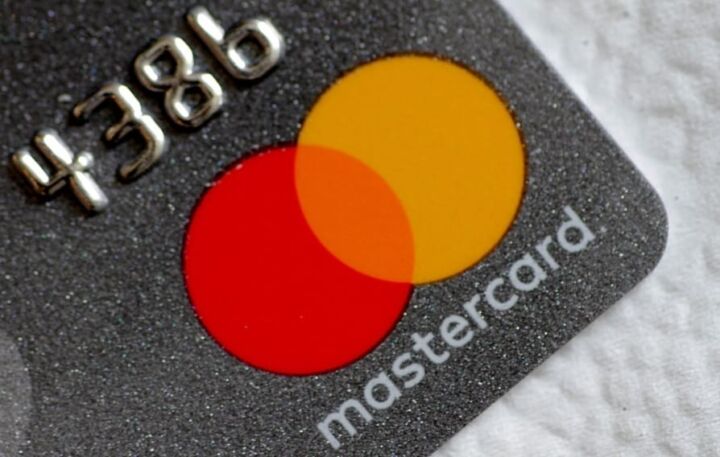In a remarkable effort to combat food insecurity and promote the health and well-being of schoolchildren, Mastercard has partnered with the Lagos Food Bank Initiative to distribute 300,000 meals across various schools in Lagos State. This initiative is aimed at addressing the pressing issue of malnutrition among children, particularly in underserved communities, where access to nutritious food is often limited.
The Importance of Nutritious Meals for Schoolchildren
Proper nutrition is vital for children’s growth, development, and academic performance. Studies have shown that children who receive adequate nutrition are more likely to perform better in school, have improved concentration, and exhibit higher levels of overall well-being. However, many schoolchildren in Nigeria face significant nutritional challenges, which can hinder their academic success and future prospects.

The collaboration between Mastercard and the Lagos Food Bank is a response to this urgent need, providing healthy meals that can help children thrive both physically and mentally. By ensuring that children have access to nutritious food, the initiative aims to foster an environment conducive to learning and personal growth.
**Logistics and Distribution Efforts**
The distribution of the 300,000 meals is being carried out in phases, focusing on schools in the most vulnerable areas of Lagos. The meals are carefully prepared to meet nutritional standards, ensuring that children receive a balanced diet that includes essential vitamins and minerals. The initiative not only addresses immediate hunger but also promotes healthy eating habits among schoolchildren.
Mastercard’s support in this partnership goes beyond financial contributions; the company is leveraging its technology and logistical expertise to streamline the distribution process. This includes using data analytics to identify schools in need and optimizing supply chains to ensure that meals are delivered efficiently and promptly.
In collaboration with the Lagos Food Bank Initiative, which has extensive experience in food distribution and community engagement, the partnership aims to maximize its reach and impact. The Lagos Food Bank has established networks with local organizations and volunteers, facilitating the smooth execution of the meal distribution program.
**Community Engagement and Awareness**
In addition to distributing meals, the initiative also focuses on raising awareness about the importance of nutrition and food security in the community. Workshops and educational programs are being organized to inform parents, teachers, and community leaders about healthy eating practices and the significance of ensuring that children receive proper nutrition.
By engaging the community, Mastercard and the Lagos Food Bank aim to foster a culture of health and wellness that extends beyond the meal distribution program. Empowering families with knowledge about nutrition can lead to more sustainable practices in households, reducing reliance on external support in the long term.
**Impact on Local Communities**
The impact of this initiative is expected to be significant, not just in terms of immediate hunger alleviation, but also in fostering long-term positive outcomes for children and their families. By providing meals to schoolchildren, the partnership aims to improve attendance and academic performance, while also promoting better health among young learners.
Community leaders and educators have expressed their support for the program, noting that access to nutritious meals can significantly enhance students’ focus and engagement in school activities. As children receive the nourishment they need, they are more likely to participate actively in their education and develop skills that will benefit them in the future.
**Sustainability and Future Initiatives**
While the distribution of 300,000 meals is a substantial milestone, both Mastercard and the Lagos Food Bank Initiative recognize that addressing food insecurity requires ongoing efforts. The partners are committed to exploring sustainable solutions that can provide long-term support to families in need. This includes initiatives aimed at improving local food production, creating community gardens, and fostering partnerships with local farmers to ensure a consistent supply of fresh produce.
In the coming months, the collaboration plans to assess the effectiveness of the meal distribution program and gather feedback from participants to inform future initiatives. Understanding the challenges faced by families and schools will be crucial in tailoring support to meet the specific needs of the community.
Conclusion
The partnership between Mastercard and the Lagos Food Bank Initiative to distribute 300,000 meals to schoolchildren represents a significant step toward addressing food insecurity in Lagos State. By providing nutritious meals, the initiative not only helps alleviate hunger but also supports children’s health, academic performance, and overall well-being.
As both organizations work together to foster awareness, community engagement, and sustainable solutions, they are paving the way for a healthier future for the next generation. This initiative highlights the importance of corporate social responsibility and the potential for partnerships to drive meaningful change in the communities they serve. Through continued efforts, Mastercard and the Lagos Food Bank Initiative are not only feeding children today but also investing in a brighter tomorrow for Lagos and beyond.
Support InfoStride News' Credible Journalism: Only credible journalism can guarantee a fair, accountable and transparent society, including democracy and government. It involves a lot of efforts and money. We need your support. Click here to Donate
